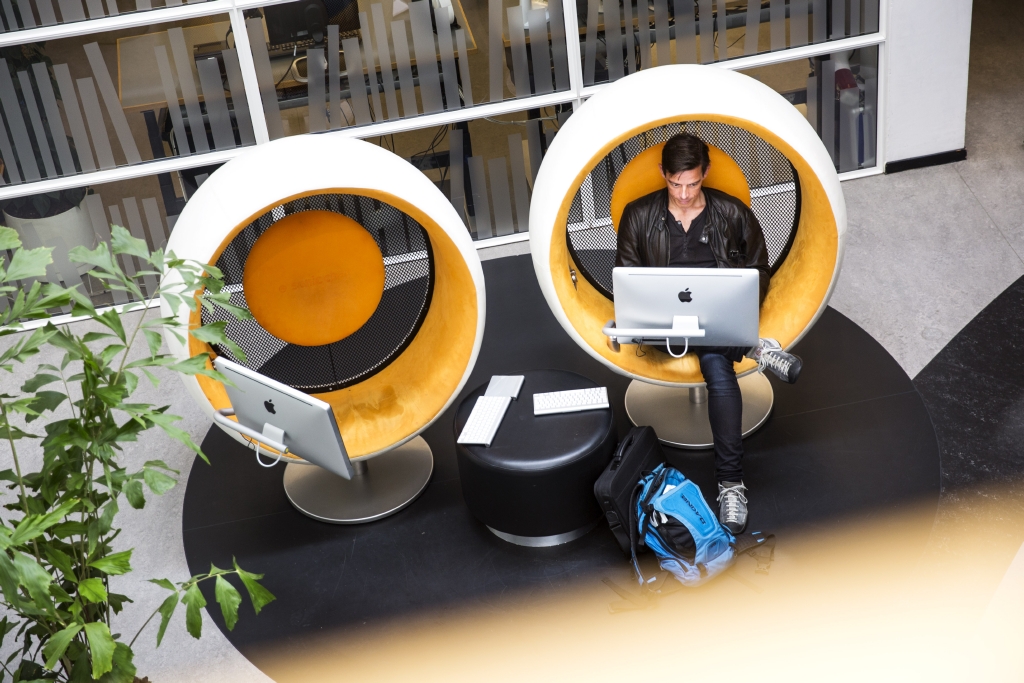PhD students at the School for Communication and Culture
Graduate School – Faculty of Arts
All the faculty’s PhD students are enrolled at the Graduate School, Faculty of Arts on a PhD programme.
At the School of Communication and Culture, PhD students are affiliated with one of the PhD programmes.
Graduate School, Arts, supports the school’s PhD students with all the administrative aspects of their PhD programme.
PhD students are also affiliated with the school, and the local department secretaries will deal with all the practical issues relating to the employment.
Please note that PhD students must inform their PhD administrator and department secretary/absence administrator of any periods spent studying abroad, as well as any absences due to illness, maternity/paternity leave etc.
Find info for potential and current PhD students at AU: https://phd.au.dk/.
Presentation of the Ph.D.-students at SCC
From the fall of 2022, we will resume our previous custom where we introduce our PhD students and their projects - either in Danish or in English. We have presented the students who started their PhD by the end of 2021 and 2022.
If other PhD students would like to have their project presented then contact annehp@cc.au.dk.
On a regular basis, we ask the PhD students, if they would like to present themselves and their project on this site.
If you would like to do that, please send an email to this address: annehp@cc.au.dk.
Amalie Scheel Nielsen
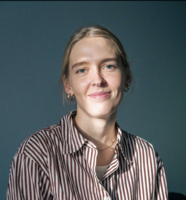
Educational background: BA Aesthetics and Culture, AU MA Digital Living, Information Studies, AU 2024 (4+4 PhD student)
Current affiliation: Digital Design and Information Studies
Main supervisor: Pablo Velasco
PhD project title: Online Resistance towards Meat Reduction: A digital mapping of Danish food controversies around attempts to reduce CO2 emission
Read about Amalie's project
My research will be about... Controversies surrounding meat and cutting back on meat consumption taking place on social media. Climate change has become an unavoidable subject to deal with - both for private individuals, companies and political parties. And it is not enough to acknowledge the subject, it has also become clear that action is necessary. One of the areas that many suggest changing is what we eat or how we put together our meals, e.g. by reducing our meat consumption. However, there are many different attitudes to what we should put on our plate, which results in large discussions in the comment sections on e.g. Facebook. These are the discussions I will investigate in my project.
When I'm at a social event and wish to explain what my project is about, I say... I will be looking at people's different opinions on and attitudes towards meat and meat consumption, and how these attitudes are expressed in comments on Facebook. Most often, this in itself sets off a debate at the family party.
If you want to know more about my topic, you can check out... First of all, think about your own attitudes towards what you eat. Have you changed what goes in the shopping basket when you are in the supermarket? What comes into play when deciding on today's dinner? And how do you experience the tone of social media? Do you actively contribute by e.g. commenting, liking, or sharing posts, or is it something you refrain from?
Amanda Skovsager Mouritsen
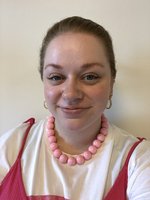
Educational background: BA Media Studies, AU
MA Media Studies, AU in 2023 (4+4 PhD student)
Current affiliation: Media Studies and journalism
Main supervisor: Pia Majbritt Jensen
PhD project title: TikTok has aged: an explorative study of content, experience and use among young TikTok users in Denmark (working title)
Read about Amanda's project
My research will be about... the increasing number of young Danish TikTok users. I am interested in investigating what kind of content they watch and interacts with on TikTok and how they experience and use TikTok as media.
When I'm at a social event and wish to explain what my project is about, I say... You have probably heard about TikTok in the media and you're probably wondering why young people waste their time staring at irrelevant videos on yet another new social media platform? And I understand why you're wondering - we don't actually know a lot about it. That's why I want to investigate what makes TikTok so likable for young Danes and what they get out of using the app - whether it's more than just "digital crack cocaine" and pastime.
If you want to know more about my topic, you should... first of all install TikTok and start using the app yourself. If you want to read a little more then Frederik Kulager has written some good articles about TikTok for Zetland. You can also find a wide range of academic articles, talks and other materials about TikTok through TikTok Cultures Research Network.
Mikkel-Theis Paulsen
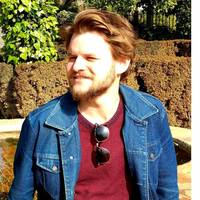
Educational background: BA Comparative Literature with supplementary subject at Universidad de Granada, Spain
Current affiliation: Comparative Literature
Main supervisor: Jakob Ladegaard
PhD project title: Brave New Worlds? A Comparative Study of The New World in Early Modern England & Spain
Read about Mikkel's project
My research will be about... Literary productions of "The New World" from England and Spain in the 1500s and 1600s. My project will investigate America's role especially in drama but also in travel descriptions, prose and poetry from the period where Spain and England were arch rivals while also building great colonial empires. I'm both interested in concrete intertextual connections between the two countries' literary history and in the general motives and topics that are processed across country borders.
When I’m at a social event and wish to explain what my project is about, I say... That I'm trying to find El Dorado. And when the awkward silence becomes unbearable, I tell them that I'm investigating literary connections between Spanish and English works that directly (and indirectly) depicts the "discovery" and the colonization of The New World. If it needs to be more precise, I tell them that I'm currently investigating gold and the emotions and affects that are connected to the different Spanish and English texts.
If you want to know more about my topic, you should... read the Bulgarian-French philosophe Tzvetan Todorov's book The Conquest of America (1982) which is a classic literary and ideological introduction to the field. Gavin Hollis' The Absence of America (2015) which discusses the (surprising) absence of The New World in English drama, and Barbara Fuchs' Mimesis & Empire (2001) which investigates the connection between literature, imitation and empire formation, are also good places to start.
A more colorful approach would be to read the Mexican author Álvaro Enrigue's rambling postmodern og baroque novel Sudden Death (2013) which entails the conquest of the Aztec Empire and connections between baroque Europe and the New World (besides the history of the game of tennis, the painter Caravaggio and other goods - read it!)
Jonathan Barnes
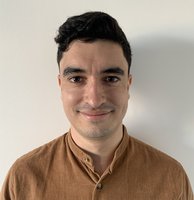
Educational background: BA (Hons) Classics, University of Durham; MA History of Art, UCL; PGCE in Latin with Classics, University of Cambridge
Current affiliation: Department of English
Main supervisor: Associate Professor Peter Mortensen
Ph.D. project title: Ovid in the Anthropocene: An ecocritical reappraisal of Ovid's Metamorphoses and its reception in 21st-century eco-fiction
Read about Jonathan's project
My research will be about... How reading Ovid’s 'Metamorphoses', a Roman epic poem composed in 8CE, through an ecocritical framework might provide alternative perspectives on human ontology in relation to the nonhuman environment in the current epoch of the Anthropocene. I will also research how 21st-century novelists are drawing on stories from 'Metamorphoses' to respond to ideas of anthropogenic climate change.
When I’m at a social event and wish to explain what my project is about, I say... I am writing about how ancient stories offer different ways of seeing the relationship between humanity and the natural world - and that seeing this relationship as interconnected is more important now than ever.
If you want to know more about my topic, you can check out... I would recommend picking up a copy of Ovid's 'Metamorphoses' and, after you have read it, see if you look at animals, birds, trees, woods, flowers, rivers, rocks - and people! - in the same way.
Rosa Postlethwaite

Educational background: University of Cape Town, 2013 - 2014, MA Theatre & Performance awarded with Distinction and Distinction in the Dissertation on a UCT International & Refugee Scholarship
Queen Mary University of London, 2009 - 2012, Drama First Class BA Honours
Awarded Sydney Lee Prize for outstanding academic achievement 2011
Awarded Westfield Trust Prize for outstanding academic achievement 2012
Current affiliation: PhD researcher on the Mobilizing Dramaturgy Co-tutelle Programme within Coventry University's Centre for Dance Research (C-DaRE) and Aarhus University
Main supervisor: Thomas Rosendal Nielsen (Aarhus University Main Supervisor)
Ph.D. project title: Dramaturgy with other-than-human species
Read about Rosa's project
My research will be about... This practice as research PhD, ‘Dramaturgy with other-than-human species’, will consist of live art projects that explore dramaturgy practice with fungi and plants and a written thesis explicating this research. The initial research questions for the PhD are: How does doing dramaturgy with other-than-human subjects activate thinking about the Anthropocene? How does doing dramaturgy with other-than-human subjects radically change my practice? And how do artists and dramaturgs negotiate the ethical problems with working with other-than-human subjects while they aim to confront inequalities relating to the Anthropocene?
When I’m at a social event and wish to explain what my project is about, I say... Making performance with non-humans.
